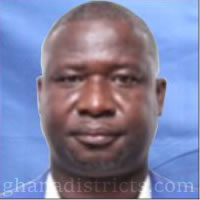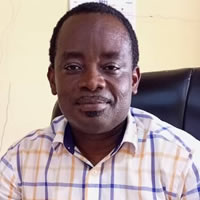Good Governance and Administration
The District Assembly is the highest political authority in the district and is headed by the District Chief Executive. He is the political and administrative head of the assembly. The District Assembly has 7 Sub-Committees; these are Social Services, Technical Infrastructure, Finance and Administration, Development Planning, Environment, Agriculture and Justice and Security.
There is also the General Assembly, which is the highest decision-making body in the district. There are twenty-nine (29) Assembly Members in the District, Nineteen (19) of them are elected, and are responsible for the 19 Electoral Areas. The rest are appointed by government.
The District Sub-structures are made up of six Area Councils namely Abuakwa, Nkawie-Toase, Barekese, Akropong, Afari and Adankwame. There are also 88 unit committees.
The district has one constituency i.e. Atwima Nwabiagya Constituency represented by a member of parliament who seeks the welfare and development as well.
The District Coordinating Director heads the centralized departments within the district administration. Neither elected nor appointed, he holds his position by merit. He is the secretary to the General assembly and the main implementer of the assembly’s decisions.
Office of the District Chief Executive
The District Chief Executive is the representative of government in the district as well as the implementer of the district assembly initiatives and Chairman of the district tender board. He also chairs the district security committee.
The District Chief Executive is Hon. Nana Asare Bediako. During his inaugural speech to the general assembly, he pledged his commitment to ensuring that the district develops to enable a transformation in the lives of the ordinary citizen.
Member of Parliament
The Member of Parliament serves as a link between local parliament (general assembly) and National Parliament. Hon. Benito Owusu-Bio is the Member of Parliament for the Atwima Nwabiagya Constituency. The NPP MP has represented the people since 2004.
Central Administration
The core departments made up of centralized and decentralized departments within the administrative structure are the office of the Coordinating Director, District Development Planning Office, Budget, Internal Audit, Town and Country planning, Feeder Roads, Statistical service, Department of Community Development, National Disaster Management Organization, National Service Secretariat, National Youth Council, Non-formal Education. Others are the Education Directorate, Directorate of Agriculture and the Health Directorate.
General Assembly
There is also the General Assembly, which is the highest decision-making body in the district. There are twenty-nine (29) Assembly Members in the District, Nineteen (19) of them are elected, and are responsible for the 19 Electoral Areas. The rest are appointed by His Excellency, the President.
The Presiding Member convenes and directs the affairs and meetings of the General Assembly. He also serves as the Chairman of the Public Relations and Complaints Committee. The local government Act, 462 spells out clearly the functions of the assembly. Some of its functions include responsibility for the overall development of the district, initiation of programmes for the development of basic infrastructure and the responsibility for the development, improvement and management of human settlement and the environment in the district.
The Executive committee headed by the District Chief Executive, is responsible for the performance of the executive and administrative functions. The Assembly has 7 Sub-Committees; these are Social Services, Technical Infrastructure, Finance and Administration, Development Planning, Environment, Agriculture and Justice and Security. A District Planning Co-coordinating Unit (DPCU) is established for the District Assembly to provide secretarial and advisory services to the Executive Committee and its Planning and programming functions. The Annual Plan produced by the Unit serves as input into the yearly budget preparation. The General assembly meets at least three times in a year.
Common Fund
With the introduction of the District Assemblies Common Fund in 1994, a number of projects have been executed by the Atwima District Assembly.The District Assembly’s aim is to improve the quality of life of the district’s populace, using both local and outside human and material resources.
To achieve these projects, the District Assemblies Common Fund expenditures are classified under economic development, social development, institutional development, spatial development and environmental development. To reduce over-dependence on the District Assemblies Common Fund, the Assembly has stepped up its efforts at mobilizing locally generated revenue for development.
Date Created : 11/24/2017 4:07:06 AM




